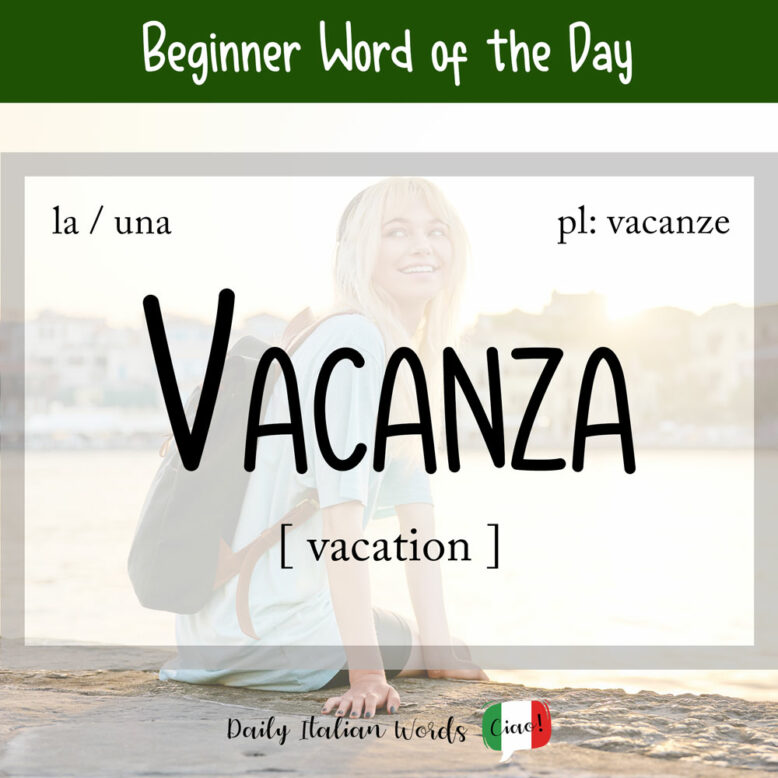The word for vacation or holiday in Italian is vacanza (feminine, plural: vacanze). Derived from the Latin vacantia, it is used for both the fixed holiday periods between school terms and periods of recreation or leisure, often spent away from home.

If you are referring to an extended period such as the summer break or a specific holiday during the year such as Christmas or Easter, the plural vacanze is often used instead of the singular.
Dove passerai le vacanze estive?
Where are you going to spend the summer holidays?

Below are a few useful verbs and phrases you might want to use with the word vacanza:
- andare in vacanza = to go on vacation
- essere in vacanza = to be on vacation
- un giorno / una settimana / un mese di vacanza = a day / week / month-long holiday
- passare le vacanze = to spend the holidays
- tornare dalle vacanze = to come back from the holidays
Non voglio stare a casa quest’anno. Voglio andare in vacanza!
I don’t want to stay at home this year. I want to go on vacation!
A person who really enjoys going on vacation, travelling and spending time in touristic hot spots might receive the nickname vacanziere. The similar sounding vacanziero, on the other hand, can be used to describe activities/weather associated with the holidays (e.g. clima vacanziero = holiday climate) or a person who is on holiday.
Sono dei gran vacanzieri questi vostri amici. Raramente li vedo a casa.
Your friends are real holiday-makers. I rarely see them at home.
If you want to stop thinking about something that is driving you crazy and give your brain a well-needed rest, you might decide to mandare il cervello in vacanza (lit: send your brain on a vacation). A similar expression in English is to turn off your brain.
Vacanza can also mean vacant. For example, vacanza di una carica means that there is an unoccupied office position.
Finally, a synonym you’ll often hear in Italy is ferie (plural of feria, but you never use the singular in this case). Whereas vacanze can mean any type of holiday taken at any time of the year, ferie usually refers to the holidays given to employees and workers in general, such as those in the summer or winter.
- Quest’anno trascorreremo le ferie in montagna. = This year we’ll spend the holidays in the mountains.
- Quest’anno trascorreremo le vacanze in montagna. = This year we’ll spend the holidays in the mountains.
Heather Broster is a graduate with honours in linguistics from the University of Western Ontario. She is an aspiring polyglot, proficient in English and Italian, as well as Japanese, Welsh, and French to varying degrees of fluency. Originally from Toronto, Heather has resided in various countries, notably Italy for a period of six years. Her primary focus lies in the fields of language acquisition, education, and bilingual instruction.


